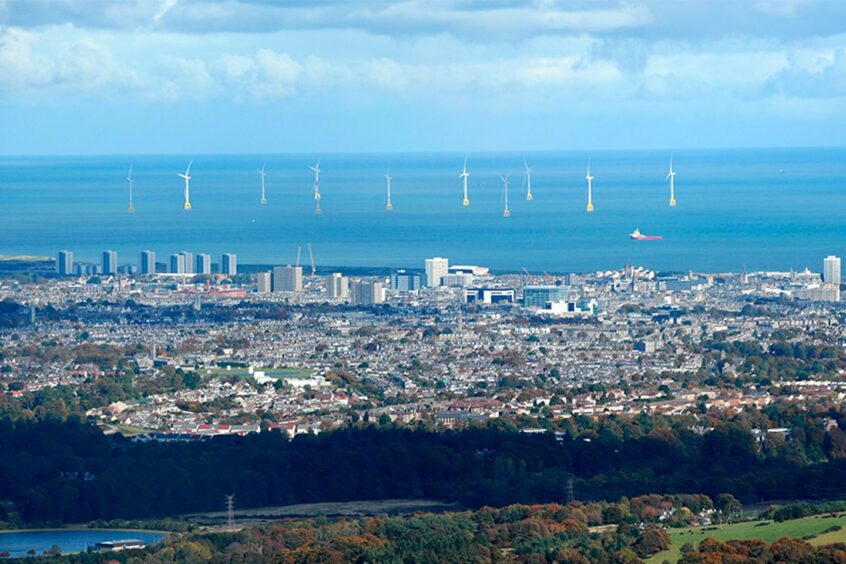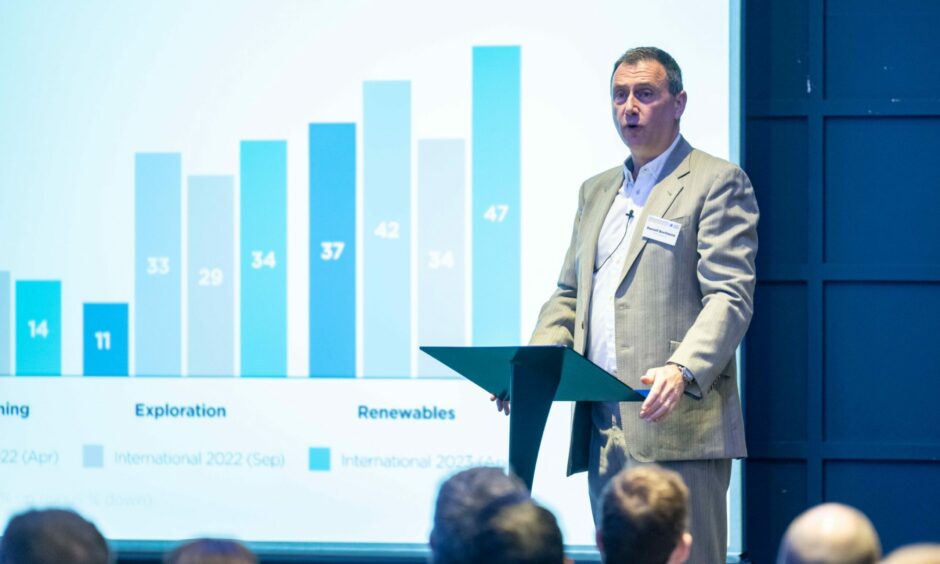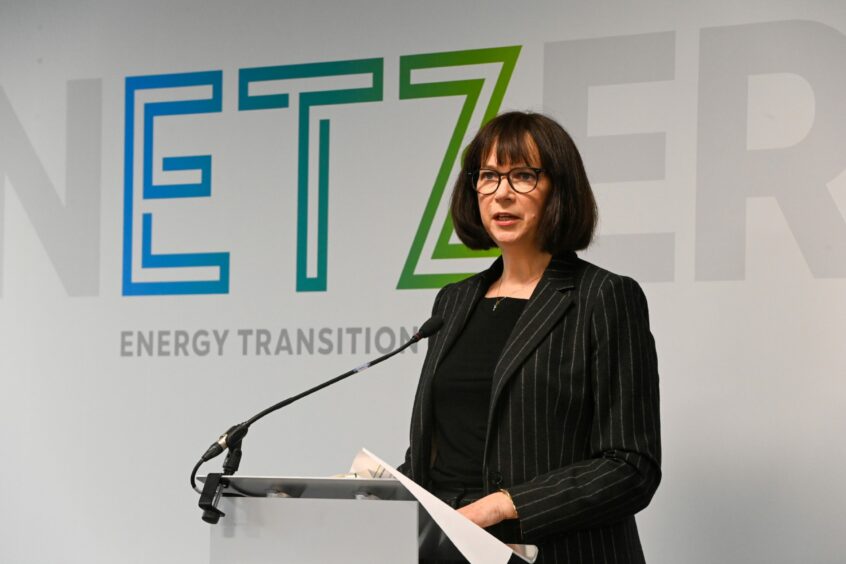Business chiefs have called for a new body independent of government to be set up to oversee UK energy security and the transition to net-zero.
The policy recommendation comes in Aberdeen and Grampian Chamber of Commerce (AGCC)’s 38th Energy Transition Survey report, out today.
AGCC says the UK energy industry is being used as a “political football”.
A ‘Bank of England’ for energy transition?
Outlining its proposal for a new energy security and energy transition body, the chamber says it should operate like the Bank of England, which strives to maintain economic stability.
According to AGCC, the new organisation could develop recommendations commanding cross-party consensus to insulate the sector from political policy shocks in the future.
‘Time is of the essence’
On the eve of the report’s publication, chamber chief executive Russell Borthwick said: “Adverse government policy, political narrative and the perception of a worsening regulatory environment is resulting in a sustained lack of confidence in the future viability of doing business in the UKCS (UK continental shelf).
“That degree of uncertainty in the future, which has had a significant knock-on impact on investment decisions and is already costing jobs, is unlikely to dissipate in the months leading up to a UK general-election, or in the early months of a new government being formed. And time is of the essence.”
Mr Borthwick took aim at the controversial energy profits levy (EPL), or windfall tax.
The policy needs to be scrapped or “meaningfully changed” before the UK can be an attractive place for firms to invest in oil and gas production, he said.
He added: “The recent King’s Speech announcement of annual licensing rounds provides a vital confidence boost for the sector and the firms supporting it, but with the caveat that if activity in the North Sea remains financially unattractive, it will be an empty gesture.”
The windfall tax has been heavily criticised since its introduction last year.
In March this year, trade body Offshore Energies UK warned 500 million barrels of oil and gas could be left in the ground because of the “uncertain” tax regime.
AGCC’s report, which is sponsored by professional services firm KPMG and ETZ, the company driving forward Aberdeen’s Energy Transmission Zone, shows government policy remains the biggest factor determining future activity in the UK energy sector.
Of the 105 businesses that completed the survey, 10 were operators and 95 were contractors or service companies. The firms collectively employ more than 58,000 people in the UK.
Damning indictment
In a damning indictment of our politicians, more than half of respondents who expressed an opinion on the issue (51%) said none of the parties currently has the right policies to support a successful energy transition.
As of October, 22% of respondents were “extremely/very optimistic” about the north-east becoming a globally recognised renewable energy “hub”.
More than half (59%) were “moderately/slightly optimistic”.
Two-thirds of respondents (66%) agreed energy transition credentials are critical to long-term success, down from 71% in April’s report.
The recent King’s Speech announcement of annual licensing rounds provides a vital confidence boost for the sector and the firms supporting it, but with the caveat that if activity in the North Sea remains financially unattractive, it will be an empty gesture.”
Russell Borthwick, Aberdeen and Grampian Chamber of Commerce
But ETZ chief executive Maggie McGinlay said the region’s “hard won and well-deserved” reputation for innovation and productivity would stand it in good stead.
She added “With continued resilience and optimism, we will secure our position as one of most attractive locations anywhere in the UK, and indeed across the world, for investment in low carbon technologies.”
Among other survey findings, fewer than half of firms (43%) listed “political environment” or “new regulation /tax legislation” among their top three concerns.
“Oil price/market stability” topped the list of most worrying factors for 79% of respondents, with 43% saying it was their top priority.
Nearly one-third (30%) of the work being carried out by firms in the energy sector is already outside oil and gas, with the figure expected to rise to 50% within seven years.
About two-thirds of respondents (65%) said they expected core staff numbers to grow over the next three years.




Conversation